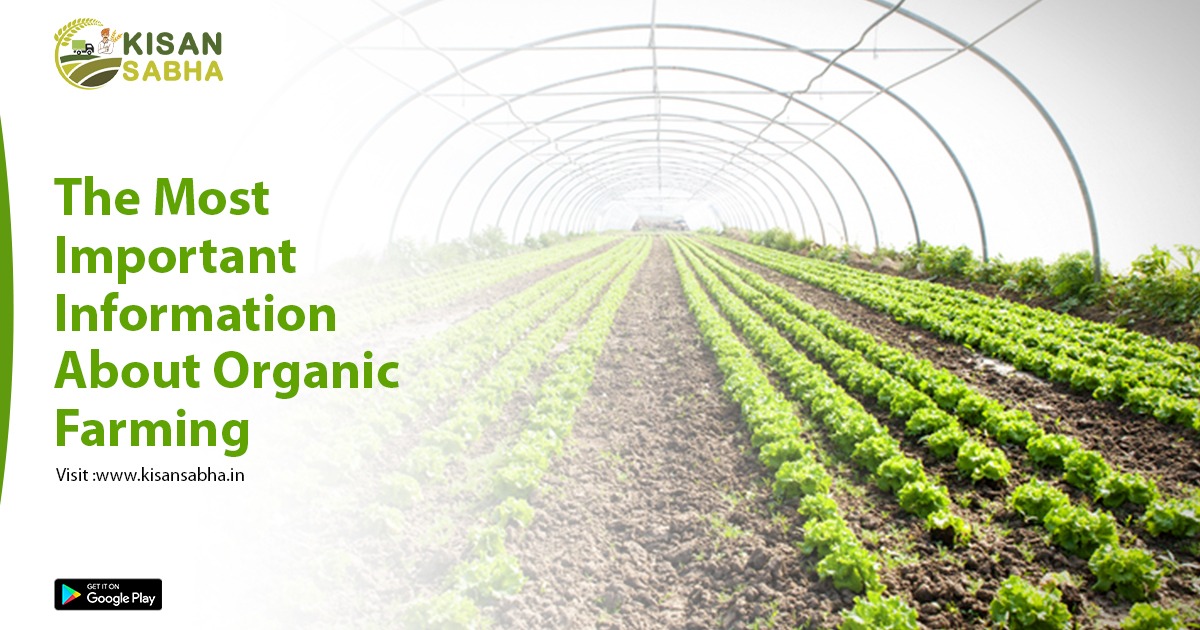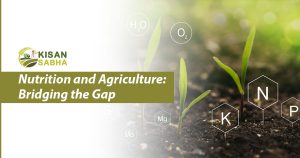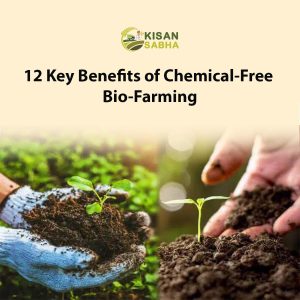Organic farming is a farming system that focuses on creating a healthy and sustainable production system by combining traditions, innovation, and science to protect the soil, environment, ecosystems, and people. In other words, it views high biodiversity standards in conjunction with thoughtful environmental practices in order to conserve naturally available resources, promote resource cycling, improve the immense ecological balance, and benefit all stakeholders. More information on organic gardening concentrates on ecosystem management and site-specific conditions rather than external agricultural inputs.
Organic farming, in a nutshell, seeks to improve crop yield by making soil, plants, and food healthier. Organic farmers work with nature and the environment to maintain the ecosystem’s equilibrium.
When nature gets used as a model, they may see their farm as a closely connected integrated entity that can flourish and support itself. It can include a variety of activities and knowledge, such as analyzing the soil to identify relevant farming methods, effectively harnessing available natural resources to minimize waste, encouraging natural predators to fight pests, recycling nutrients, and so on.
Organic farming’s primary emphasis
In general, organic agriculture or organic farming has the following important characteristics:• Using green manures, animal manures, cover crops, crop rotation, and other methods to improve soil overall quality, increase biological activity, and implement sustainable farming practices to maintain consistent soil health.
• Using biological control and other natural methods to control weeds, pests and insects, and plant illnesses.
• Increasing variety. Biodiversity alludes to the variety of living species found on Earth, which includes plants, animals, fungi, and even microorganisms. Every species collaborates like an intricate web to sustain life, encourage diversity, and maintain natural balance.
• Using holistic techniques and thoughtful, humane methods to promote animal well-being
• Reducing external farming inputs such as hormones and antibiotics
• Promoting the use of renewable resources, as well as the efficient use and conservation of land and water
• Restore, sustain, and improve ecological equilibrium
Organic farming’s advantages and disadvantages
One of the primary advantages of organic gardening is its low cost. Growers can expect a decent return on their investment. The practice is profitable due to the consistent demand for natural and organic food items. Organic farming is environmentally friendly and promotes ecological variety.
Organic foods may be more nutritious and tasty than other agricultural methods. Farmers may struggle to satisfy large-scale demands due to low production in the early years. They may also have a lower shelf life than chemical products. Organic goods may not be affordable to all consumer groups. Farming can be time-consuming, and meeting regulatory standards can be difficult.
Growing numbers of farms practice organic farming, but there are obstacles to overcome as new technologies are being developed. While it can be successful as a thoughtful farming practice, it is also true that the prudent use of safe and effective agrochemicals can promote sustainable agricultural practices.
Organic Farming: Making Money While Saving the Environment
Profitability is a major point of contention in organic and conventional cultivation. While both practices are debatable, producers are primarily concerned with the productivity and profitability of each. Many variables influence farm productivity, including crop characteristics, soil type, weather conditions, and insect pests and diseases, among others.
Organic farming is more productive than conventional cultivation. Higher input expenses and a lower market price, on the other hand, have an impact on its profitability. When it comes to yields, organic farming is still less effective than conventional farming. One reason for this is that organic farming promotes crop development while conventional farming prevents crop damage.
Some examples demonstrate that organic farming has a high possibility for adequate yields. During drought years, organically grown maize yielded 31% more than conventionally grown corn, according to Rodale Institute research. Finally, despite its reduced yields, organic farming has proven to be an efficient practice. One reason for organic production’s efficiency is the higher market price that organically produced crops can command. Certified organic products are typically more expensive to the general population than their conventional equivalents.
Read more at kisansabha.in





